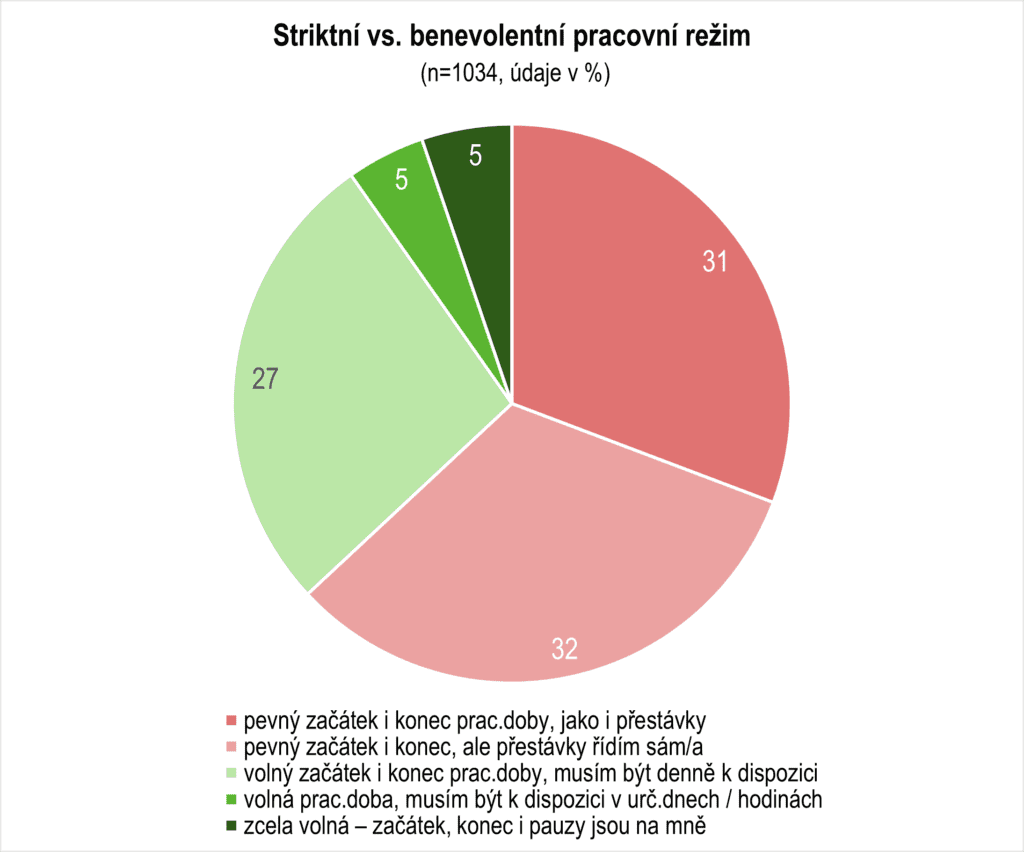The current work regime suits only 31% of employees across the Czech Republic. The rest would like to see changes in the current conditions. Employees are most interested in the possibility of freely combining work from home and at the workplace. Unlimited vacation and flexible start and end times are also attractive. Nearly two-thirds of employees currently have fixed start and end times. This is according to the Up Czech Republic Employee Barometer, which surveyed more than 1,000 respondents from domestic companies and organizations.
The latest Employee Barometer confirms that interest in working from home is not waning. However, rather than purely working from home, employees are more attracted to a hybrid model, in which they can alternate between working from home and at the workplace as needed. This is the most frequently mentioned change that employees would like to make to their working arrangements. A quarter of respondents would like to see this change, which is most sought after among Generation Y employees, the so-called millennials.
Working from home is also one of the main areas affected by changes based on the amendment to the Labor Code, which took effect on October 1. “We welcome the adjustment to remote work, because more and more companies are starting to use a hybrid work regime and have no experience with it. In addition to covering the costs of home offices, they will have to address bigger issues, such as communication and the involvement of employees who work hybrid,” says Stéphane Nicoletti, CEO of Up Czech Republic, which develops HR platforms for employee motivation.
Vacation with a capital V
Hybrid work is even more preferred by employees than the very attractive benefit of unlimited vacation. Some companies in the Czech Republic have already successfully introduced this regime, although it is far from being applicable everywhere and carries a number of pitfalls. Among employees, 21% of those surveyed would welcome this change in the work regime. “The youngest generation Z employees are clearly the most interested in unlimited vacation, so we can expect the popularity of this regime to grow in the future,” predicts Nicoletti.
Work from to – necessity or relic?
Flexible working hours are just as desirable among employees, with more than a fifth of employees also interested in this option. Only 5% of employees currently have completely flexible start and end times, as well as breaks or lunch breaks. On the contrary, almost two-thirds have fixed start and end times. About half of them also have strictly regulated breaks and lunch breaks.
Some professions naturally require this, and it cannot be arranged otherwise, but according to the Barometer results, this is certainly not the case everywhere. Forty percent of employees are convinced that fixed rules are not based on the nature of their work, but rather on company customs and internal regulations that should be changed. The incoming generation of employees is most strongly convinced of this.
The cause of outdated work regimes, which no longer suit employees today, is often simply a lack of information. “Companies and HR departments have not yet been very methodical in gathering the opinions of their people. This is often due to organizational complexity, complicated evaluation, or the absence of suitable digital tools. At the urging of companies, we have recently developed new modules for online employee satisfaction measurement within the Můj Up platform, which can give company management the necessary impetus to make changes, for example in the area of working hours,” says Nicoletti.
A slightly less desirable change in the work regime is shorter working hours or a shorter, for example, four-day working week. Eighteen percent of employees would be interested in such a change in the work regime. Thirteen percent of employees would be interested in a more flexible regime for breaks and lunch breaks.

Chart 1: Which work regime most accurately corresponds to the conditions in which you currently work?


